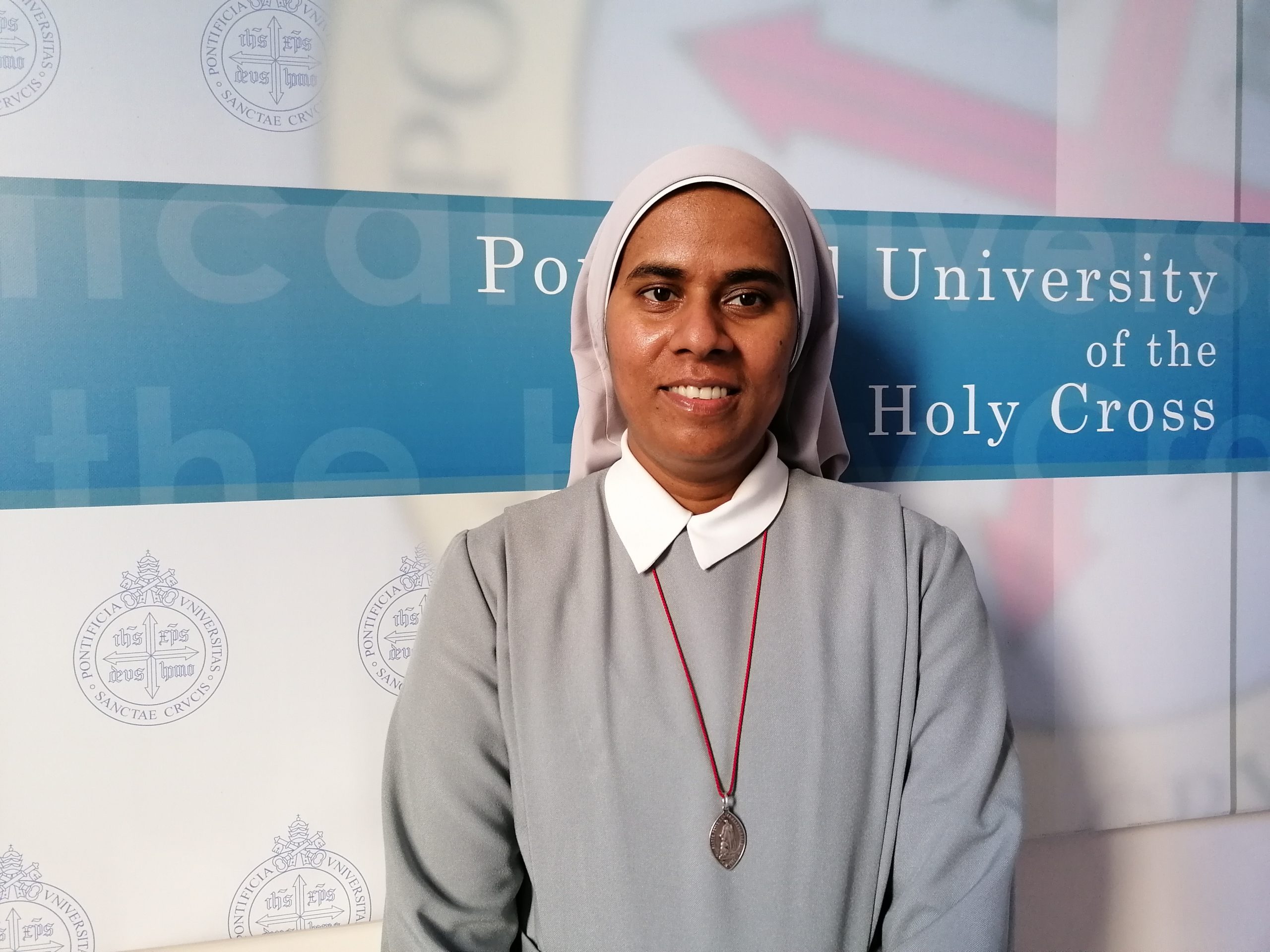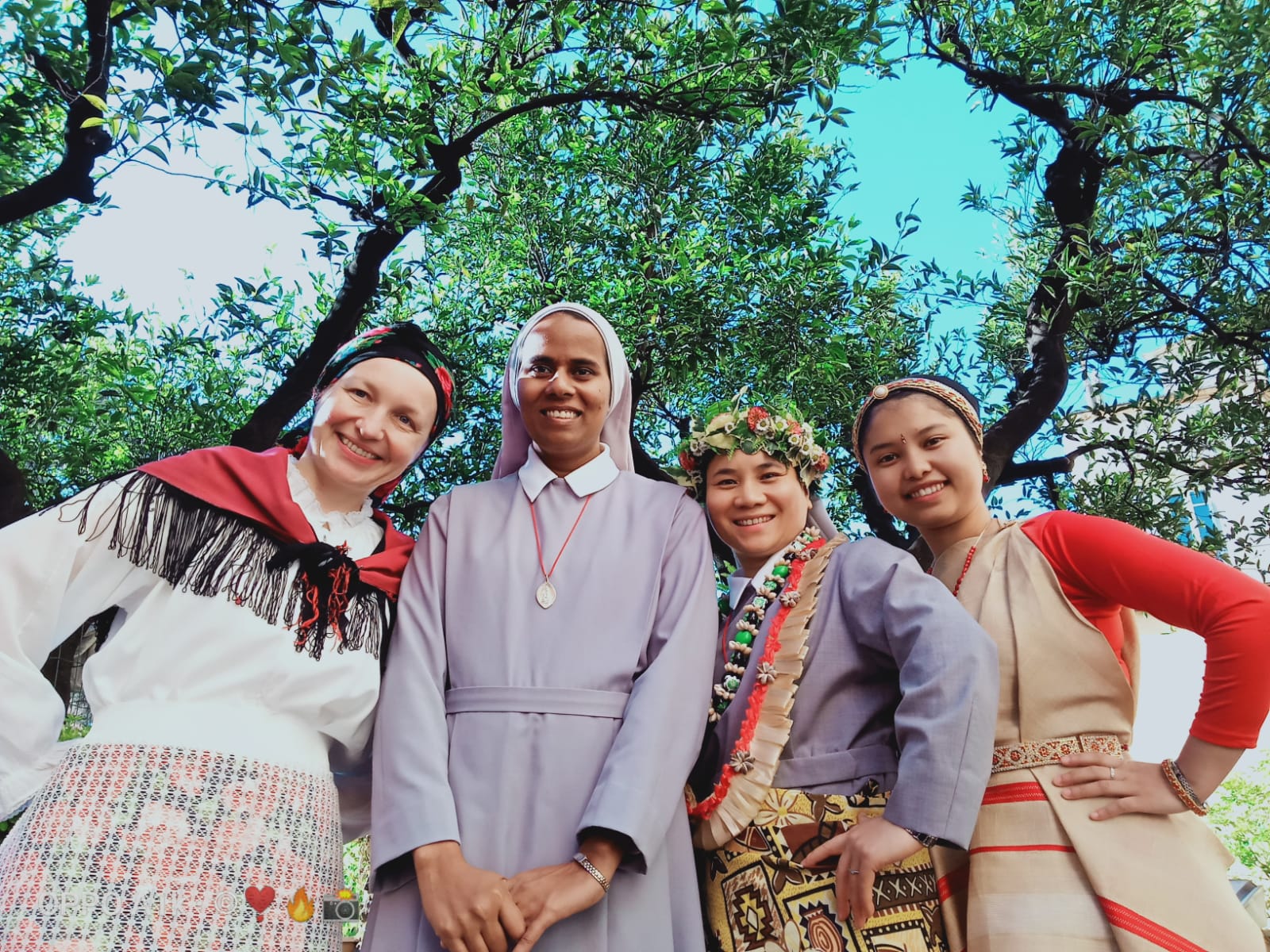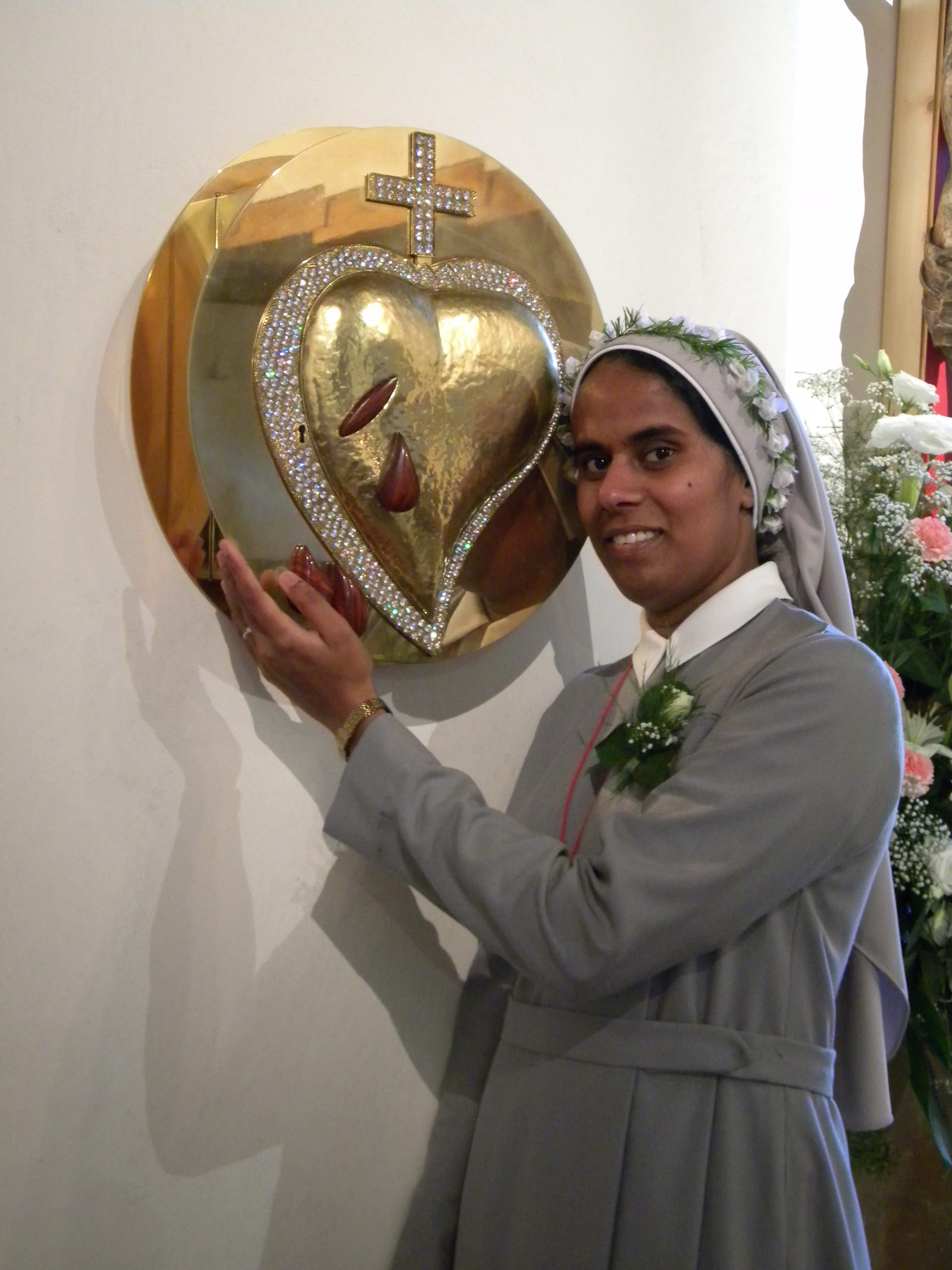
February 26th will mark the 25th anniversary of the School of Social and Institutional Communicationfounded in 1996 within the Pontifical University of the Holy Cross.
This Faculty aims to transmit the faith of the Church in every century with the instruments at its disposal and also to train professionals capable of operating in the field of communication in ecclesial institutions, through a very solid and diversified program, which is based on theoretical and practical study.
The students of Social and Institutional Communication, in addition, in fact, focus very much on the cultural environment in which the Church proposes its message, in a spirit of ongoing dialogue with the women and men of every century.
For this purpose, they must be well acquainted, on the one hand, with the contents of the faith and the identity of the Church as an institution, through subjects of a theological, philosophical and canonical nature, and on the other hand, the concrete application of the theories, practices and techniques of institutional communication to the particular identity of the Catholic Church, including through advanced laboratories in the different media (radio, television, press and media based on new technologies).
The Faculty of Social and Institutional Communication, thanks to its unique characteristics in the field of pontifical universities, has already trained, in 25 years, dozens of communication professionalsToday, they are making their contribution in various ecclesiastical and non-ecclesiastical sectors, thanks above all to the help of many benefactors, in particular the foundation CARF - Centro Academico Romano Foundation.
CARF, which not only provides scholarships to young people from all over the world to study at the Pontifical University of the Holy Cross, but also offers its financial support to help the university realize its goals. regular scheduled academic activities (the usual courses), to support the entire staff of professors and officials, to finance extraordinary activities (such as congresses, publications and other activities of professors) and to subsidize the necessary tools and technologies (laboratories, classrooms, didactic instruments, etc.).
We set out on a journey to learn more about the reality of this Faculty and its mission in the world through the stories of its students, alumni and faculty.
Today we meet Sister Nirmala Santhiyagu, from India, of the Congregation of the Missionary Sisters of St. Peter Claver. Nirmala is 35 years old and is studying at the Pontifical University of the Holy Cross thanks to a scholarship from CARF - Centro Academico Romano Foundation, which also helps another student from the same congregation.
Hello everyone! It is a pleasure for me, being a student in the first year of the Bachelor's Degree in Communication, to be able to approach this world through an interview so that you can get to know me and all my academic family, as I call it, of the Faculty better. This is very important, to be family here tooI value this very much, as I was born and raised in a very close-knit Catholic family in Tamil Nadu, India, along with my parents and my three siblings.
Well, it is a pleasure for me and for our readers as well. It is also very interesting that you, who come from India, as a woman, Christian and religious, study in Rome and then share your formation in an environment that is not always easy, and in a country about which the chronicles often give us dramatic stories of violence against women.
Yes, in fact my congregation asked me to study Social and Institutional Communication to be able to collaborate more effectively with their communication team, working in the diocese of Indore, India. It is a very difficult time all over the world, also due to the emergence of COVID, but I think this kind of study is interesting and at the same time challenging, especially for a country like India, for the same reasons you mentioned.
I imagine that being born and growing up as a Christian in a country where Christians are a small minority must not have been very easy!
Well, in fact when I was little it was not as difficult as it is today. First of all, I was fortunate to have very loving parents who made sure that we children grew up in the Christian faith following their moral values. My family members played a vital role in the formation of my faith: I was always encouraged to participate in the Sunday catechism classes and in all the activities that were carried out for the formation of faith and morals in our parish.
In addition, I studied in a Catholic school run by nuns. and there I had more possibilities to value my Christian values, that is to say, to share what one has, to forgive others and above all equality: that is to say that we are all children of God and it doesn't matter the caste or creed. This is why I say that I was lucky, because I know that not all children, especially girls, have this opportunity to grow up as I did.
"I studied in a Catholic school run by nuns where I learned that we are all children of God and no matter the caste or creed."

Sister Nirmala Santhiyagu, from India, belongs to the Congregation of the Missionary Sisters of St. Peter Claver. She is 35 years old and is studying Institutional Communication at the Pontifical University of the Holy Cross thanks to a CARF scholarship.
The missionary activities of the Sisters of St. Peter Claver in mission countries such as India and Vietnam cooperate with diocesan pastoral activities in the Christian formation, both spiritual and moral, of children and young people, in the empowerment of women, in the education of poor children and above all to awaken missionary awareness among the faithful.
And since you were a child, did you have the opportunity to meet people of different religions?
Yes, as I grew up, either at school or in the family environment, I was able to cross paths with people of other religions, such as Hindus and Muslims, and there I learned to know the contents of their beliefs, coming to appreciate and treasure my Christian faith even more. Only in Christianity, then, did I find a God who allows you to be yourself, with all your weaknesses and abilities, and it was always exciting for me to know that I have a God who loves us, forgives us and wants his children to be happy here on earth, and then to be with him forever in heaven.
Well, it must be very enriching for a child to grow up in such an open environment....
Good, I must admit that children today in most parts of India do not enjoy the religious freedom that we had in our childhood days, there have been enormous changes in recent days due to the political influences of Hindu nationalism, which have not failed to affect other ethnic or religious groups.
But I remember, in my childhood days, the coexistence of different religions was very peaceful and uplifting: studying and playing together, irrespective of caste or religion; the respect we had for each other's beliefs, and so on. Even today, I cherish the wonderful experiences I had in my school days.
Was it in school that you felt the call to be a religious?
Well, not only there... I was actually very inspired by the activities of the nuns in my parish, as well as by my blood sister who was a nun herself. So I also wanted to be missionary. With the help of my parish priest, I joined the Congregation of the Missionary Sisters of St. Peter Claver where I am now. In 2007 I made my first religious profession. As the years went by, I rediscovered and confirmed my vocation to be the witness of God's love and in 2014 I said my "yes" to the Lord's call forever.
And how does that relate to communication?
It's all about communication, especially today! And the charism of the Sisters of St. Peter Claver is missionary animation, understood as the information and formation of the people of God about the missions. It is done by awakening in everyone cooperation in the mission, to provide the missionaries with the spiritual and material means necessary for the evangelization of peoples.
How wonderful! The whole town, the whole community involved in the mission!
The missionary activities of the Sisters of St. Peter Claver in mission countries like India and Vietnam cooperate with diocesan pastoral activities in the Christian formation, both spiritual and moral, of children and young people, in the empowerment of women, in the education of poor children and above all to awaken missionary consciousness among the faithful. And it must be said that, in the activities of empowerment of women and education of poor children, we are in constant contact with people of other religions.
A very important challenge, if we consider that Christians in India are a minority...
Yes, in fact the percentage of Christians in India is only 2.5%, but their presence is incredibly significant for the Indian society.Just think of St. Teresa of Calcutta! The contribution of Christianity is very remarkable, especially in the areas of reforming destructive traditions, modernizing the democratic system, social education and access to the media, medical care, social change and impact among tribals and the poor. dalits (those without caste), empowerment of women.
A mission, then, that involves everything?
In my opinion, the mission that awaits every Christian in this 21st century in India is not only to share the joy of the gospel, but also to promote the values of the gospel, to provide equal rights to all citizens. Although technology has improved the quality of life and work, the process of modernization has its negative social, moral and religious effects.
As people migrate from rural areas to metropolitan and industrialized areas, most people, with a low professional and educational level, end up being exploited, marginalized, victims of injustice and in extreme poverty, causing the disintegration of family ties. In this vicious circle, the poor get poorer and the rich get richer.
"The mission of every Christian in this 21st century in India is to promote Gospel values."

Sister Nirmala says that the percentage of Christians in India is only 2.5%, but their presence is incredibly significant for Indian society. "Just remember St. Teresa of Calcutta!" she says. Christianity's contribution is remarkable, especially in the areas of reforming destructive traditions, modernizing the democratic system, social education and access to the media.
Not to mention the contrasts between the different religious components....
We are faced with a growing fundamentalist trend, which sees modernity as the process responsible for the decline of values, claims a return to traditional values and redefines them in an ideology that supposedly replaces modernity and excludes diversity.
The current situation calls more than ever for interreligious dialogue. Because developments in the modern world have posed a challenge not only to India's social and political institutions, but also to ethical and religious beliefs and ideas. There is an urgent need for a general awareness of parity, which must be fostered among all.
¿And what is the situation of women in your country?
India has always been a patriarchal countryl, where women have traditionally been prevented from emancipation since ancient times. In fact, women's inferiority was codified by the Manu Code: during childhood they were the property of the father, in adolescence of the husband and, in the event of the husband's death, the property of the closest male relative. This ancient model is particularly important because it underlies old and new oppressions. Indeed, although the status of women has improved with the advent of modernity, the tradition is still deeply rooted throughout the country.
Of course, India was the first major country in the world to have a woman head of government (Indira Gandhi); and yes, there are many educated and emancipated women in the cities, and many modern marriages in which both spouses have equal rights. However, these are marginal episodes.
There is also the drama of high mortality among girls....
Of course. India is one of the few countries where men outnumber women, and this is partly due to the higher mortality rate of women. girls, to whom less attention is paid. Widows are allowed to remarry, but if they do, they are disapproved of and marginalized, so they mostly live in poverty. Child marriages have decreased, but still exist, especially in rural areas. In addition, there is a dramatic aspect of the female condition that has to do with dowry.
Nowadays, then, there is a real "stock exchange" of potential spouses: the higher their social status, the higher the dowry required. Often, after the marriage has already taken place, the groom's family asks for more objects or more money, and if the bride's family cannot give more, the bride is burned alive, simulating a domestic accident.
For some time now, many women have been organizing themselves into groups and committees, and hopefully one day these tragedies will come to an end, but Indian women still have a long way to go to achieve equal rights.
A path that goes through training and communication...
Of course! The reason for all these problems is illiteracy, lack of education, lack of access to means and instruction. Christian missionaries have worked for centuries to educate the poor and empower the marginalized. The Catholic Church has always invested in education in India and even today we have the best schools. Of course, there is much to be done, but we will not stop working in this direction.
And it is very good that our European and Western readers and benefactors become more aware that they are contributing, helping you to be formed, to improve the condition of the entire people of India, not only of Christians, through the work of the Church, but also of the people of India.ia.
Of course, and for this we are very gratefulWe are all Church, and I am very sure that the academic formation made possible by the contribution of our benefactors will help us to live our religious life as authentic witnesses to the Gospel and good professionals, bearing much fruit for His Kingdom. Generosity always remains in the form of a gift, the formation we receive because of the generosity of so many people will equip us in turn to be generous to others.
Gerardo Ferrara
BA in History and Political Science, specializing in the Middle East.
Responsible for the student body
University of the Holy Cross in Rome